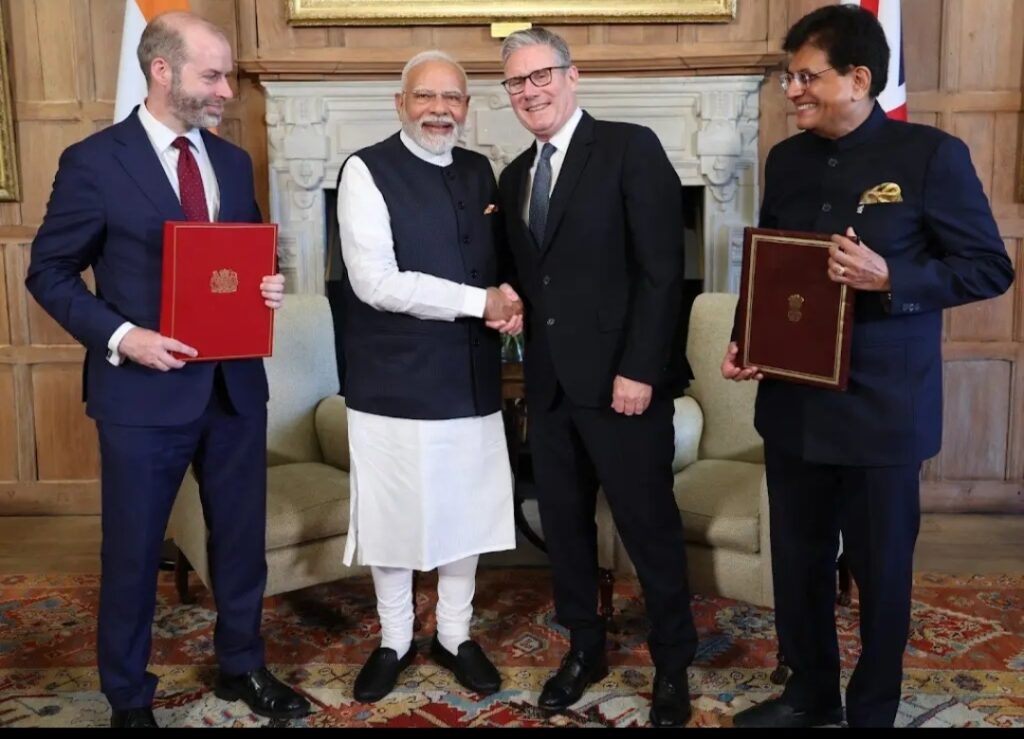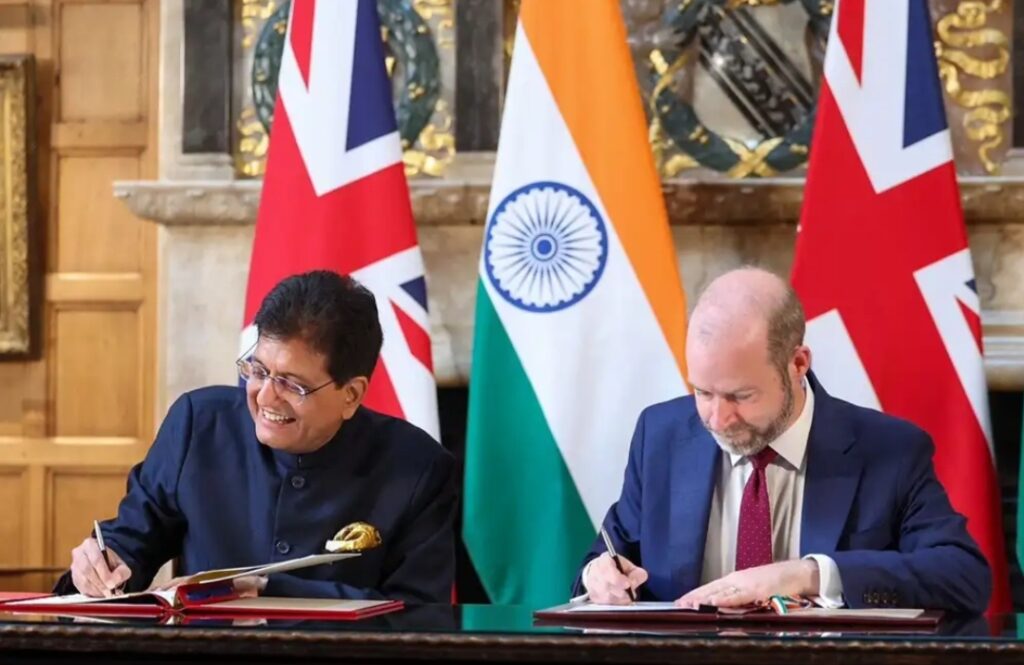
Comprehensive Economic and Trade Agreement
There is no shred of doubt that the much-awaited Comprehensive Economic and Trade
Agreement(CETA) finally signed between India and UK has created unprecedented bonhomie
in diplomatic circles. Through this deal, it is being pre-empted that the bilateral trade in goods
and services which is now worth $ 56 billion would double by 2030. A series of bilateral trade
measures as outlined in the deal is likely to benefit both countries immensely. Through this
agreement, a lot more is expected to benefit youth, farmers, fishermen and MSME in the
domestic sector.
Having said that, the question, however, does arise : After Brexit, what led the UK to go on a
signing spree of FTA treaty with a large number of countries, especially with the
once–colonised nations under the British regime? The answer lies in the fact that during 47
years of the UK’s membership with the European Union(EU), the European Commission took all trade–related decisions and negotiated trade agreements on behalf of the UK. The UK did not have much say over them.
After unshackling itself from the chain of EU membership on 31st January, 2020, the UK went
on a signing and negotiating spree with countries encompassing many trade agreements which
required removal or reduction of tariff or non–tariff barriers to trade. The prime objective was to enter into new agreements and replace old ones held by the EU on behalf of the UK. After leaving the EU, the UK signed trade agreements with 70 countries. By December 2024, the UK had 39 active FTAs encompassing 102 countries.
Now interestingly enough, most of the countries with whom the UK did enter into FTA
agreements were once colonised under the British regime. Those colonised nations who were
“once bitten” by the atrocious British rule, were, of course, feeling “twice shy” of entering into
trade agreements with the UK. The UK lost no time to recognise this diplomatic factor ; and on
this score, it is worth recalling that in order to appease Kenya, King Charles lll himself took the
initiative and visited Kenya in 2023. During an official get-together, he did not hesitate in
admitting and expressing that there could be “no excuses” for British colonial atrocities against Kenyans.
Undeniably, it was a watershed moment for people at large in Kenya as King Charles lll
candidly recognized the gruesome acts of violence against Kenyans under colonial rule. So as of now, the UK’s diplomatic intentions are clear. It has no qualms in admitting the historical mistakes of the past. It seeks to enter into partnerships with countries with a motto based on mutual respect. Apart from the mutual trade benefits, the recent FTA deal signed between India and the UK is slated to bring together the two nations “as equals”.
Notably France which was once regarded as “close competitor” of the UK in setting up colonial hegemony in countries has not learnt a lesson or two from the diplomatic sleight of hand with which King Charles lll won over the hearts of people in once–colonized nations.
On the contrary, it has the audacity to run its fiefdom of neo–colonialism with alacrity. As a fact, France is still running its writ in so-called independent countries of west and central Africa by controlling their currencies : the west and central African francs.
{ Gyan Bhadra is a Senior Journalist and columnist }






